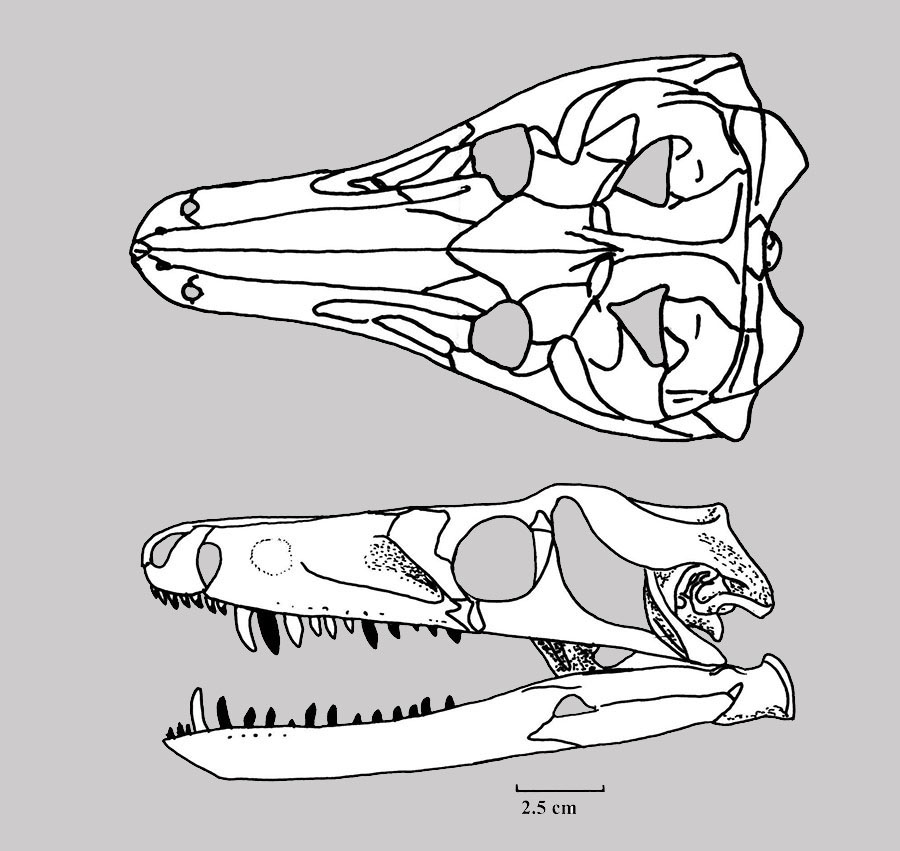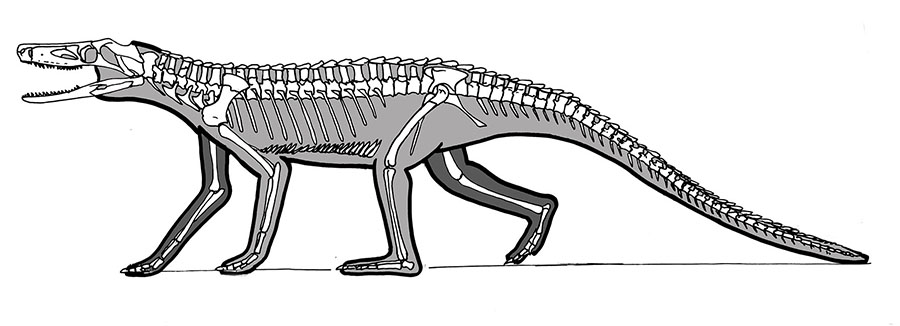
Species: elaphros SIMMONS, 1965
Etymology:
Holotype: CUP 2081
Locality: Near Dawa Village, about 10 km northeast of the Lufeng town, (lat . 25’10”N, 102’10”E, Yunnan Province, China.
Horizon: Zhangjiawa Formation, (Upper Lower Lufeng Formation), Lower Lufeng Group, Dark Red Beds.
Biostratigraphy:
Age: Lias Epoch, Early Jurassic.
Material: A partially complete skull and jaws, a series of articulated vertebrae from the cervical, dorsal, sacral and caudal regions of the column, and a fragment of the forelimb and hand.

Dibothrosuchus elaphros after Wu & Chatterjee, 1993.

Dibothrosuchus elaphros after Wu & Chatterjee, 1993.
Referred specimens.
CUP 2489: Partial postcranial skeleton.
CUP 2106: Left coracoid.
CUP 2084: Right ilium and proximal head of femur.
= Dibothrosuchus xingusensis WU, 1986
Etymology:Holotype: IVPP V 7907
Locality: About 150 m northwest of the Dawa School, Lufeng County, Yunnan Province, China.
Horizon: Zhangjiawa Formation (Old The lower part of the Dark Red Beds of Upper Lower Lufeng Formation).
Biostratigraphy:
Age: Lias Epoch, Early Jurassic.
Material: A nearly complete skull with lower jaws, 12 presacal vertebrae, the first 8 paired dorsal scutes, the almost complete right fore-limb, the right scapula, coracoid and ilium.